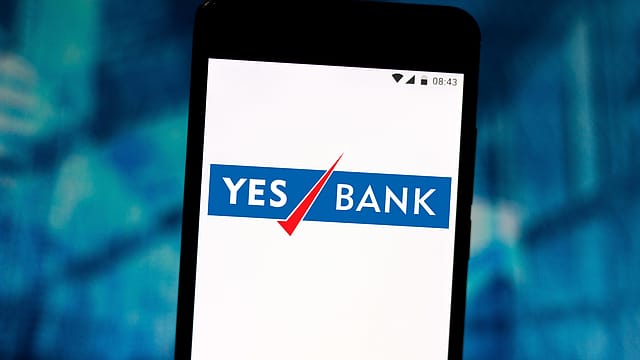Light at the end of the tunnel for YES Bank?
ADVERTISEMENT

Embattled private sector lender YES Bank may be seeing some light at the end of the tunnel after fending off damaging controversies and struggling to repair its weak balance sheet. On Thursday, the Ravneet Gill-led bank informed the bourses that it had received a binding offer of $1.2 billion from an investor. The news lifted the YES Bank stock by as much as 35% during trading hours on the BSE; it closed 24.03% higher at ₹70.45.
In an exchange filing, YES Bank said, “[We have] received a binding offer from a global investor for an investment of $ 1.2 billion in the bank through fresh issuance of equity shares, subject to regulatory approvals as well as the bank’s board and shareholders approvals. The bank also continues to be in advanced discussions with other global and domestic investors.”
The disclosure comes a day before the lender announces its second quarter earnings results. Analysts say the possibility of a global investor stepping in to buy stakes in YES Bank is seen as a big positive because it will boost the lender’s weak capital base.
“YES Bank’s tier 1 capital is precariously low, and this has been a big concern for investors. A capital infusion of $1.2 billion will allay these concerns and aid continuity of the bank’s operations,” Lalitabh Shrivastawa, deputy vice president-BFSI Research, Sharekhan, said.
Kajal Gandhi, vice president-research at ICICI Securities, said while more clarity is required on the dilution of stake, the infusion of capital at this stage will allow YES Bank to improve its capital adequacy ratio and clean up its books. “A better capital position will allow the lender to increase provisioning for bad loans,” Gandhi added. In June, YES Bank’s capital adequacy ratio was 15.7%.
At the current market price, the capital infusion of $1.2 billion represents a little over 32% stake in YES Bank. The Reserve Bank of India (RBI) has traditionally frowned upon single investors owning over 10% stake in a private bank. However, RBI norms allow this rule to be bent on a case-to-case basis for special circumstances as was seen in the recent case of Catholic Syrian Bank.
YES Bank had raised ₹1,930 crore from financial investors like Societe Generale through a qualified institutional placement in August. About a month later, the lender announced its plans to raise funds from investors, and said it had “received strong interest from multiple foreign as well as domestic private equity and strategic investors”.